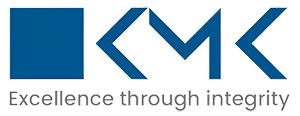Top Cybersecurity Strategies Every CPA Firm Should Implement

Cybersecurity has become a crucial issue for CPAs and accounting firms in recent years. A critical point here is that many of these firms have very few data security measures. This leaves them vulnerable to attack. CPA/accounting firms primarily deal with private financial data, which makes them attractive targets for hackers. However, such attacks can be prevented by giving importance to cybersecurity measures like infrastructure and insurance. Next, let us understand some cybersecurity best practices that will go a long way in protecting client data from cyberthieves and online criminals.
Cybersecurity Best Practices
CPA and accounting firms comprise one of the most targeted sectors by cybercriminals. Therefore, accounting firms must adhere to cybersecurity best practices to protect client data and keep their data safe from cyberattacks. The reason for these crippling attacks is simple. These firms hold susceptible information such as client information, confidential business plans, transactional records, and other confidential data that no outsider should access. Having said that, here’s a thorough list of best practices that accounting firms can implement against cybersecurity threats:
- Password Security Protocols: This is one area where some accounting firms could get complacent. Many times, you might create a password that is easy to remember but also easy to hack. Creating a password that uses a mix of characters – letters in different cases, symbols, and numbers is better. Make sure it is long as well. It is not a good idea to use passwords that are easy to guess, such as those that include your personal information, such as your birthday. It is better to create a truly unique and hard-to-guess combination to make it harder for a brute-force attack to happen. Some other helpful tips for accounting firms for creating passwords are as follows:
- Never let anyone know about your personal and work accounts
- Never share your passwords
- Regularly change your personal and work passwords
- Implement password manager software to store passwords safely
- Implement refresher courses and training programs about cybersecurity awareness and other measures
- Multifactor Authentication: Sometimes, it is just not sufficient to have strong passwords in place. More layers of protection are needed so that the user’s identity is firmly established even after providing their username and password. Some examples include a personal identification number (PIN), biometric data, or an identifier such as your smartphone.
- Cybersecurity Software: Using reputable, regulation-compliant cybersecurity software designed explicitly for accounting protects your company’s data against cyberattacks. With the help of appropriate cybersecurity software, it is possible to form an extra wall of security against attackers trying to steal your firm’s sensitive data through extortion ransomware. Programs such as Practice Protect and others ensure complete data protection for your accounting firm. Additionally, it is a good idea to secure your firm’s systems from cyber threats such as malware, spam mail, and phishing attacks by installing good antivirus software such as McAfee, Sophos, or Bitdefender.
- Constantly Updated Software: Using the most up-to-date version of your software is advisable to protect your organization. Ensure your software is updated continuously and your accounting firms benefit from the latest revisions. Some benefits include more robust firewalls and better modifications against the newest types of malware. Also, ensure that your data is constantly backed up. Using cloud storage is a good idea, which means there is always an option to back up your company’s most sensitive data securely. Some benefits of using cloud storage include real-time data syncing and file versioning for audit trail purposes.
- Keeping Devices Locked at All Times: Accounting firms must educate their accountants and staff to lock their devices habitually, especially when they are away from their computers, even for a while. This practice is essential to prevent unauthorized access and safeguard sensitive information from being exposed to unintended individuals. Furthermore, firms should emphasize the importance of data security, ensuring that complacency does not lead to avoidable breaches. Additionally, accounting firms should prioritize data protection at all times and avoid too much complacency in the workplace. Implementing automatic screen locks and promoting a culture of vigilance will further strengthen the firm’s security posture, protecting client data and internal operations.
Bonus Point:
- Get Cybersecurity Insurance: Ensuring steps to safeguard your company’s private data goes a long way in strengthening your firm’s cybersecurity. At the outset, you must ask questions about keeping losses to a minimum in the unlikely event of an attack. A cybersecurity policy ensures that you add a layer of protection and financial support. Make sure that it meets your firm’s specific needs. Therefore, you must also speak to the IT team to understand the measures your firm takes to protect against data breaches and enhance your cybersecurity. At the same time, you must relay the gathered information to your cybersecurity provider for better protection through a policy specifically tailored to your unique circumstances. Hence, it is critical to understand that cybersecurity insurance is a crucial investment for accounting firms to protect themselves from issues such as lawsuits, heavy fines, and costs associated with data breaches.
KMK & Data Security
At KMK, we are fully committed to safeguarding the security and confidentiality of our clients’ financial information. As a trusted provider of outsourced accounting and tax services, we recognize the critical importance of protecting sensitive data from unauthorized access, theft, and cyber threats. To meet these challenges, we’ve developed a comprehensive security program that aligns with industry standards and regulations, including compliance with IRS Publication 4557. Our program includes regular security assessments, robust data encryption, strict access controls, and continuous staff training on best practices for data protection. We remain vigilant in monitoring and updating our security measures to keep pace with emerging threats and technological advancements. Here are key security measures KMK has implemented to safeguard client data:
- ISO 27001: 2022 Certification: KMK is ISO 27001:2022 certified, demonstrating our commitment to the highest standards in information security management.
- IRS Publication 4557 Compliance: We adhere to guidelines set forth by the IRS in Publication 4557, ensuring our practices meet rigorous regulatory requirements.
- Strict Access Control: We enforce strict access controls, allowing only authorized personnel to handle sensitive client data.
- Data Encryption: Our robust data encryption protocols protect sensitive information from unauthorized access or theft.
- Staff Training: We provide ongoing training to inform our staff about the latest data security best practices.
- Continuous Monitoring and Evaluation: We regularly evaluate our security systems to detect and address potential vulnerabilities.
- Multifactor Authentication: We use multifactor authentication to add an extra layer of security for client data.
- Secure File Sharing: Our secure file-sharing platforms facilitate safe client communication and collaboration.
- Cloud-Based Technology: We utilize cloud solutions that meet industry-recognized security and compliance standards.
- Disaster Recovery Plans: We’ve implemented disaster recovery and business continuity plans to maintain operations during a data breach or other catastrophic event.
With these measures, our clients can be confident that their financial data is secure with KMK.
Concluding Thoughts
Cybersecurity is no longer optional for CPA firms and accounting professionals—it’s a necessity. With cybercriminals increasingly targeting sensitive financial data, firms must implement the proper security measures. From strong password protocols and robust software defenses to multifactor authentication, these strategies can significantly reduce the risk of breaches. Investing in cybersecurity insurance adds an extra layer of protection in an attack. At KMK, as an outsourcing accounting firm, we prioritize comprehensive cybersecurity measures to safeguard our clients’ data from potential threats. By staying vigilant and adopting best practices, firms like KMK can ensure the highest data security level, protecting clients and their operations.
Bert Wilson serves as our U.S. representative and client success manager, specializing in U.S. tax and accounting services. With expertise in tax compliance, financial reporting, and outsourced accounting solutions, Bert helps clients navigate complex financial challenges. Holding a Master’s degree in accounting and having obtained his C.P.A. license from the state of Colorado, he ensures client expectations are exceeded through tailored solutions and seamless collaboration with our India team. Passionate about building relationships, Bert enjoys both early mornings and outdoor sports, embodying a proactive approach to success.
serves as our U.S. representative and client success manager, specializing in U.S. tax and accounting services. With expertise in tax compliance, financial reporting, and outsourced accounting solutions, Bert helps clients navigate complex financial challenges. Holding a Master’s degree in accounting and having obtained his C.P.A. license from the state of Colorado, he ensures client expectations are exceeded through tailored solutions and seamless collaboration with our India team. Passionate about building relationships, Bert enjoys both early mornings and outdoor sports, embodying a proactive approach to success.
USA:
651 N Broad St Suite 205, Middletown, DE 19709, USA
Phone: 310-362-2511
India:
300, Sankalp Square-3B
Sindhu Bhavan Marg,
Ahmedabad, Gujarat 380058
For Career: 91-98240-42996
Developed by Bluele | Copyright © 2026 | KMK Ventures Private Limited. | All Rights Reserved


